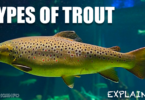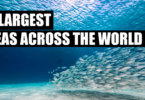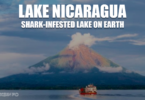Oil spills represent significant environmental disasters with far-reaching consequences for both marine ecosystems and human communities living in coastal areas. These awful events frequently arise from oil tankers, offshore drilling incidents, or pipeline drips. In this article, we shed light on the devastating consequences of oil spills on marine and human life, as well as the long-lasting impacts that these catastrophes have.
Effects of Oil Spills on Marine and Human Life
When the catastrophic event of an oil spill occurs in an ocean, this will not only affect the marine life living under the water but also disturb the life of local communities along the coastal regions. Some of the notable effects of oil spills on marine life and humans are explained below:
Impact of Oil Spills on Marine Life
The oil spills have a significant impact on marine life and can persist for years or even decades. Some of the consequences of oil spills are:
Habitat Destruction
When oil is discharged into the ocean, it smooths the surface of the water which can cover anything it comes in contact with, including seagrass beds, corals, mangroves, etc. These areas are important for marine life and innumerable species, and many foliage pests have no homes or breeding grounds.
Ecosystem Disruption
The primary component of marine food webs, phytoplankton, is significantly impacted by petroleum pollution. The quantity of fish and other marine species is decreased as a result of this loss of microbes, which impacts the entire marine food chain.
Toxicity
Crude oil includes harmful substances that can damage marine life by interfering with their immunological, reproductive, and respiratory systems. Fish, birds, and marine animals can all die from small quantities of oil. Additionally, oil may build up in the tissues of living things and enter the human diet when seafood is polluted.
Bioaccumulation and Biomagnification
Oil contaminants don’t stop at the surface; in fact, they enter the food chain and accumulate in organisms at higher trophic levels, especially those consumed by humans. The process, known as bioaccumulation and biomagnification, can result in toxic levels of oil-related compounds in seafood, posing health risks to humans who consume contaminated marine products.
Harm to Coral Reefs
Coral reefs play a vital role in maintaining marine ecosystems but are particularly vulnerable to oil spills. Oil can clutter coral polyps, blocking their access to light and food. The toxic chemicals in oil can also harm the symbiotic algae that live within coral tissues, leading to coral bleaching and death.
Impact Of Oil Spills on Human Life
Like marine life, the human communities living along the coastal regions are greatly affected by the oil spills that occur accidentally in the oceans, such as:
Economic Losses
Oil spills have profound economic consequences for coastal communities and industries. Fisheries and recreational activities often suffer when oil spills occur in coastal areas. Fishing grounds become closed, and tourists avoid affected beaches, leading to lost income and jobs.
Health Risks
Oil spills can directly affect human health. Toxic compounds in the oil can leach into the water as well as the air, causing severe health risks to people living in affected areas. Inhalation of fumes from oil spills can cause respiratory problems, skin burns, and headaches.
Contaminated Seafood
Seafood retrieved from oil spill areas may be contaminated with oil-related toxins. Eating contaminated seafood can cause severe health issues, including nausea, vomiting, diarrhea, and chronic health problems like cancer. Government officials often issue advisories and restrictions for fishing and seafood consumption following an oil spill to protect public health.
Psychological Impact
When faced with uncertainty about their future, communities who depend on the sea for their livelihoods may experience elevated levels of stress and anxiety. The long-term impacts on mental health, particularly for individuals who were exposed directly, can be severe.
Tourism Decline
Beach tourism is an important source of income for many communities, but oil spills may deter tourists due to adverse effects on beaches and recreational activities. Beaches covered in oil pose a threat to swimmers and beachgoers, leading to unemployment and reduced revenue for local businesses.
Prevention and Mitigation
To address the devastating effects of oil spills, various preventive and mitigation measures can be implemented:
- Strict regulation of oil extraction, transportation, and storage can reduce the impact of oil spills.
- When an oil spill occurs, a quick and accurate response is essential – the faster the response, the less damage.
- Oil companies must prioritize safety by implementing the latest technology and training programs for their employees.
- Along with oil spills, efforts should be made to repair coral reefs and grow seagrass beds in impacted ecosystems to recover them.
- Oil spill damage can be lessened with continued study and development of ecologically friendly oil spill cleaning methods.
Conclusion
Oil spills have profound and lasting effects on both marine as well as human life. These environmental disasters disrupt ecosystems, harm marine species, and impose economic and health burdens on affected communities. Strong regulations, rapid response mechanisms, and environmental restoration are all important elements in a comprehensive approach to addressing this critical problem. Our oceans and coastline protecting areas are not only an environmental need but also important for the well-being of future generations.







